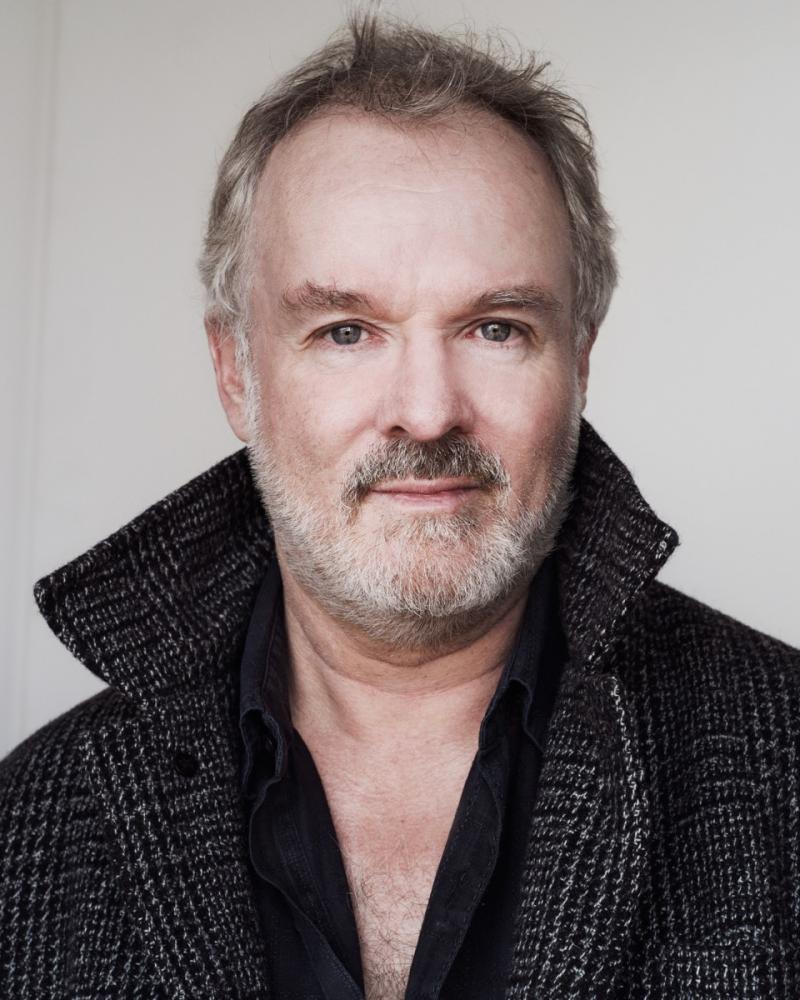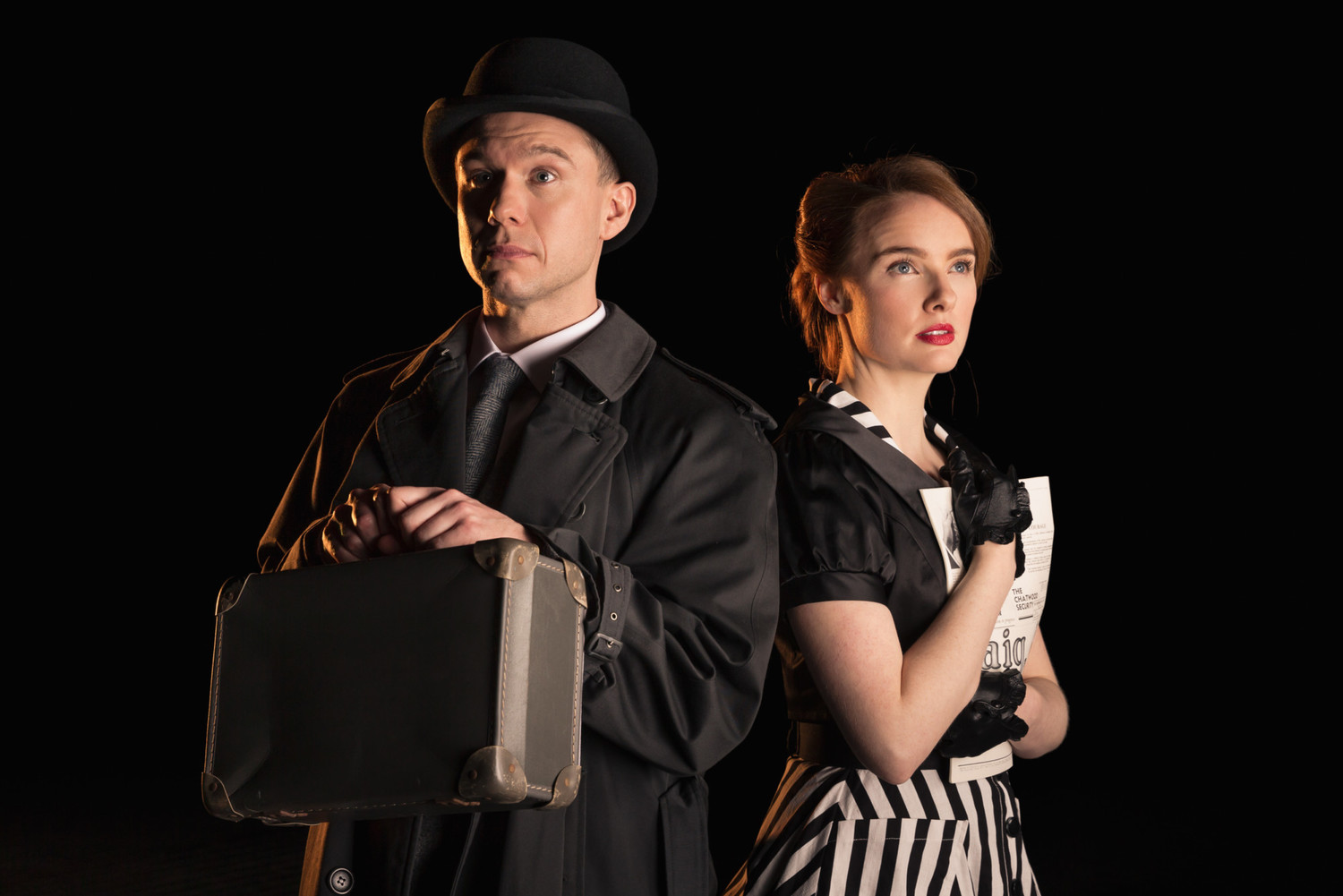Interview: Jeremy Sams Talks AMOUR

Amour, which opens soon at the Charing Cross Theatre, isn't just a musical - it's a musical fantasy. Tinged with love, longing, and imagination, it's a show that not only provides, but demands, endless creativity.
Book writer Jeremy Sams spoke to BroadwayWorld ahead of the UK premiere about doing magic on stage, and the power of the imagination.
Amour is - how do you pronounce it, the more French way, or the English way? Is it Amour or Amour?
I go the French way, Amour.
Amour is often billed as a 'musical fantasy,' and I think that's very interesting - there are lots of musicals, not a lot of musical fantasies. So what's the fantasy part of it?
Well, the fantasy part is that it's based on something quite normal for French people, but not for us, which is just surreal things happening. In this case, a man for no reason at all wakes up and discovers he can walk through walls.
The story that happens really is that he's in love with someone from a distance and he maybe can use this skill to ingratiate himself or make himself known to her in some way, and suddenly we're in an environment where everybody wants things, or wants things they don't have - and it's about that.
He eventually gets the girl, as it were, but then he discovers that he loses the power to walk through walls. It's a fantasy in that respect. It doesn't belong in the real world, it's in the surreal world. It's very French.
Sort of like a magical realism type thing.
Exactly right! If you know the films of Luis Buñuel, strange things happen to people, but no one thinks it's odd, no one thinks, How on earth is that possible? They just deal with their lives when strange things happen.
So it's very much of its period, this post-war period, in the late 1940s and 1950s. It's a period where everything is about what could happen. Paris is on its knees, it's been starved by war. The people dream a lot. It's sort of about when dreams come true.

I'm really interested in how the magical side of Amour comes out on stage. Of course in fiction, you can write whatever you want, and in film you have the 'magic of cinema'. But it's different on stage, isn't it?
Well, it's strange. They made a French movie called Le passe-muraille where we see a man walking through a wall. And when we did the original Broadway production, the idea was very much with amazing stage magic. But actually, it's very expensive, stage magic. To make it look like someone is passing through a wall.
In this production - which I love - everything is made by a very, very small number of props. So it's more about what the feeling is - what it's like to have your head in one world and your feet in another. What it's physically like to walk into a bank, into a jeweller's store, into a bakery. Our hero is eventually arrested and thrown in jail, which is no problem - he just walks through the walls of the jail.
So what we see in this production is very much the physical theatre feeling of what it's like to be stuck half in one world, half in another, and moving through. So it's not literal in any way, but it's beautifully rendered.
You've talked about how the play is a product of its context, France after the war, so I was wondering how the musical fits into our current context. I've noticed there are a lot of gritty, realistic dramas in London right now - a lot of people shouting at their parents. So what is the space, I wonder, for a musical fantasy?
Well, it's actually about how loving and wanting can change things. Here's an ordinary man hopelessly in love with a girl who will never, ever, ever notice him. He's Mister Cellophane, or whatever the French of that is. And in many ways it's the wanting and the love that give him, somehow, the magical power. So it's about having a superpower, if you like, which you haven't asked for, which you have to deal with.
So there's nothing gritty or realistic about it, apart from the fact that it's set in a very real world. There's a prostitute, and there are workers, and a news vendor, a street painter, so it's set in a very real world, in Montmartre. But actually, it's about fantasy. It's about how you can fly if you want. You can pass through walls if you want. So it's one big metaphor, if you like, but there's no social realism as such. It's more magical realism than social realism.
I think people need to believe there are possibilities. And I think, personally, those come from love, and wanting more. I look around the world today and it's lack of imagination which is almost the biggest hurdle to people expanding their lives and their thoughts. Lack of imagination and lack of creativity. And what's nice about this piece is that it suggests with imagination and creativity you can change people's lives and your own life, just a tiny bit. And that makes the world a tiny bit better.
It's kind of what I think about theatre. It might make the world a tiny bit better for a tiny bit. And that's immeasurably wonderful.
So this problem of a lack of imagination - where does that come from?
Creativity - I don't think creativity is taught enough in our schools. I really don't. I think all young people are born creative and it gets walloped out of them! The sadness of the world today is a lack of time, lack of education - I just see young people with creative imaginations, which are endless fertile, being made literal, and constrained, and bored.
By imagination I mean the things that come from your head, rather than the things that are put into your head. I've never actually put that in words before, but it's something I feel quite strongly. What could this be, rather than what is this?
Amour at Charing Cross Theatre until 20 July
Videos
